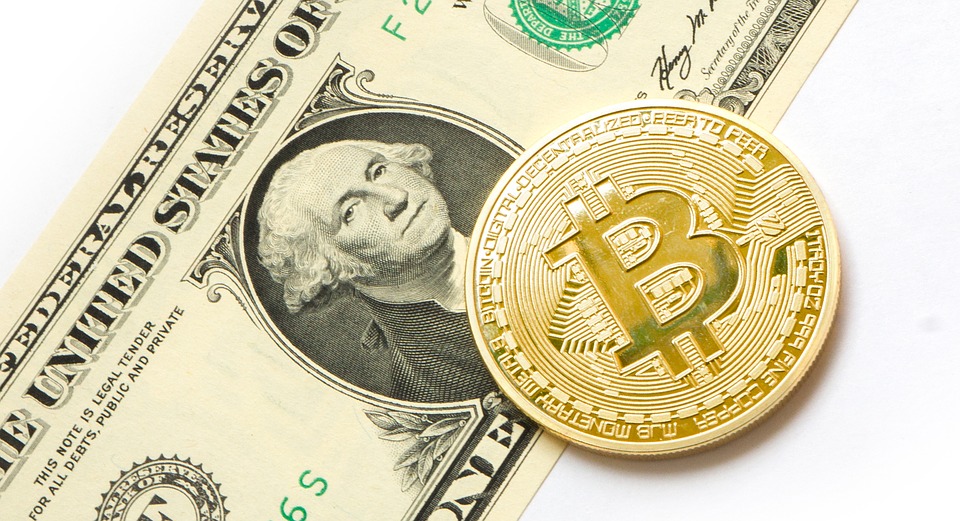As of today, we are fine regarding Bitcoin as “play money”, and we are fine even if we don’t know of its existence yet. It’s a fun experiment, not an actual contender.
You can be sure that buying a pizza for 10 dollars today will not make you immortal for all the wrong reasons in the near future, and that those 10 dollars will probably buy you the same amount of pizza tomorrow, or next week.
If you buy that pizza using Bitcoin, chances are that in a matter of hours, the amount of pizza that you could have bought with your Bitcoin doubles or halves. Why would you take that risk?
As we go about our day, we want our money to be stable. We want to rest assured that what we have under our pillows and in our bank accounts is going to reliably sustain our living standards. So looking at the cryptocurrency market, it seems clear that this feature of stability is missing. But what about the pieces of paper and coins in our pockets?
The on-off relationship of government-issued currencies and gold reaches back thousands of years. Its chemical solidity and scarcity made gold a near-perfect commodity that is superior to other metals and, most of all, superior to human judgment.
It prompted the introduction of the Gold Standard, a measure to provide stability in currency exchanges by fixing the value of global currencies to gold.
“We have gold because we cannot trust governments” — Herbert Hoover, 31st President of the United States, 1933
Ironically, the inconveniences caused by the limited supply of gold would eventually lead governments to suspend the Gold Standard and enable them to freely print money themselves, shifting the trust from gold, a measurable, emotionless commodity, to governments and central banks. Life gets easier if you can print money when you need it.
The attempt to remove the power of secretly manipulating monetary supply from the hands of centralized institutions failed, at the hands of these very centralized institutions.
I was brought up in small-town Germany where you have banks and ATMs a bicycle ride away from home and online and mobile banking at hand quite literally, whenever you need them. Trusting your bank is as normal as accepting paper sheets in return for products or services and expecting that you can pass those paper sheets on to any other merchant. The last time I heard somebody ask, “what is money?” was when my teacher explained a working task in politics class to a bunch of 15-year-olds that didn’t care.
Our money works, so it has value to us. We are conditioned not to think further than that. We live in a bubble, one that is so well-formed and comfortable that we struggle to get up and peek at what’s behind that shiny facade, even if the flaws of the system pop up on our screens in block letters. We are the exception much rather than the rule.
Only one of several examples is India’s “demonetization” which in 2016 saw the country’s Prime Minister give four hours’ notice that all 500 and 1,000 rupee bank notes would be made essentially worthless.
Four hours. Then your cash won’t be accepted anymore. It won’t have value anymore. Because your government says so, and they can say so.
Back in small-town Germany, in our bubbles, we would skim through such news on our smartphones and half-heartedly comment, “wow, crazy what the world has come to,” or think, “there are some really bad people out there,” or wonder, “who in the world would do such a thing?”
What it comes down to, ultimately, is the fact that we are flawed in that we have emotions, feel greed, and experience opportunism. The reason why we need a middleman when we send money is that no matter how friendly the person on the other end seems, we know we can’t trust them. The reason why we make contracts and put them down on paper is that we know we can’t trust each other. Such is the nature of humanity.
We know that humans can’t be trusted, yet our entire financial infrastructure builds on trust in the judgment of a group of humans with the power to decide over the fate of billions of other people.
The reason why we opt out of fiat and into Bitcoin is that humans can’t be trusted. This realization spreads faster to some places than to others. But once your trust is shaken, you will relate. Why wait until the damage is done?
For the first time in history, Bitcoin successfully eliminated from the financial world the largest danger to any ecosystem: human emotion.
Bitcoin is not unstable
— its price is. And nothing else is to be expected today. One popular argument is that the cryptocurrency market capitalization (~120 billion USD) makes up just a fragment of that of the U.S. Dollar alone (~1.5 trillion USD in 2017), and however hackneyed it might sound to you by now, it’s still true and accounts for the very largest part of Bitcoin’s price fluctuation. A great analogy for this can be found on Quora:
For Bitcoin to become an ocean, it takes time. Such a process goes hand in hand with the improvement of infrastructures and applications, and any high expectations in sudden adoption will be disappointed — at the same time, development continues quietly and steadily.
— if under your control, it will give in to you. It will be what you want it to be, and it will make exceptions to your benefit.
And that will work — for a while. Until it becomes apparent that Fiat is manipulable, unreliable, unstable. Until it loses the confidence of everyone around you, and with that its value.

